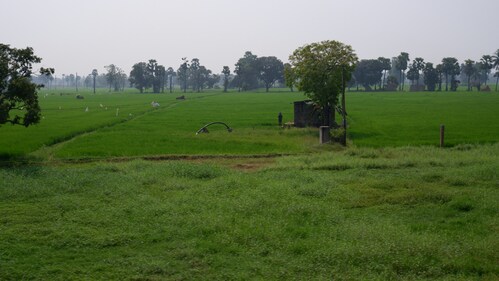Agriculture remains a cornerstone of global economies and societies, feeding billions and underpinning countless industries. Amidst challenges such as climate change, resource scarcity, and growing populations, optimising agricultural practices is more crucial than ever. Central to these optimisations are irrigation pumps, which have become indispensable tools for farmers worldwide. This article explores the pivotal role of agricultural pumps in enhancing agricultural productivity, sustainability, and economic viability.
The Essence of Irrigation in Modern Agriculture
Agriculture has transcended traditional methods, embracing technology to meet the demands of the modern world. Irrigation, the artificial water application to land, stands out as a practice that significantly boosts crop yields and quality. However, its effectiveness hinges on the technology used, with watering pumps at this system’s heart. These devices ensure water reaches vast agricultural lands efficiently and reliably, overcoming the limitations of natural rainfall and uneven water distribution.
Irrigation Pumps: Types and Technologies
The variety of pumps reflects the diversity of agricultural needs and environments. Centrifugal pumps are widely used for their simplicity and effectiveness in moving water over large areas. Submersible pumps, on the other hand, are ideal for deep water sources, minimising water wastage and maximising energy efficiency. Solar-powered pumps represent a leap towards sustainability, offering an eco-friendly solution by harnessing the sun’s energy to power irrigation systems.
Impact on Agricultural Productivity
Introducing field watering pumps into farming practices has led to a remarkable increase in crop productivity. By ensuring crops receive water consistently and in optimal amounts, these pumps prevent stress from drought or excessive rainfall, leading to healthier crops and higher yields. Moreover, irrigating land efficiently allows for multiple cropping cycles per year, significantly boosting food production without expanding farmland.
Enhancing Water Use Efficiency
Water scarcity poses one of the most significant threats to global agriculture. Irrigation pumps play a crucial role in mitigating this challenge by enabling precise water management. Advanced irrigation systems and efficient pumps allow farmers to deliver the exact water quantities needed at the right times. This precision conserves water resources, reduces costs, and minimises the environmental impact of farming operations.
Driving Sustainability in Agriculture
Sustainability in agriculture involves practices that meet current needs without compromising future generations. Agricultural pumps, especially those powered by renewable energy sources like solar power, contribute significantly to this goal. They reduce dependence on fossil fuels, lower greenhouse gas emissions, and offer a reliable water source in remote and arid regions. Such practices ensure that agricultural growth does not come at the expense of environmental health.
Economic Implications for Farmers
Investing in agricultural pumps often results in substantial economic benefits for farmers. Improved crop yields translate into higher income, while efficient water use reduces operational costs. Furthermore, using renewable energy-powered pumps can lead to energy savings and independence from unstable fuel prices. Access to reliable irrigation also opens up opportunities for cultivating high-value crops, diversifying income sources, and enhancing food security.
The Future of Water Pumps in Agriculture
As the world moves towards more sustainable and efficient agricultural practices, the role of agricultural pumps is set to grow. Innovations in pump technology, such as smart pumps equipped with sensors and IoT connectivity, promise even greater water and energy efficiency. These developments will enhance agricultural productivity and contribute to global efforts to combat climate change and preserve natural resources.
In conclusion, irrigation pumps are more than just mechanical devices; they are catalysts for growth, sustainability, and resilience in agriculture. These pumps are pivotal in meeting the world’s increasing food demands by enabling efficient water management, boosting crop yields, and supporting eco-friendly farming practices. As technology advances, the potential of water pumps to drive agricultural success into the future is boundless. The commitment of stakeholders, from farmers to policymakers to investing in and adopting these technologies will be crucial in realising their full potential for global agricultural advancement.

